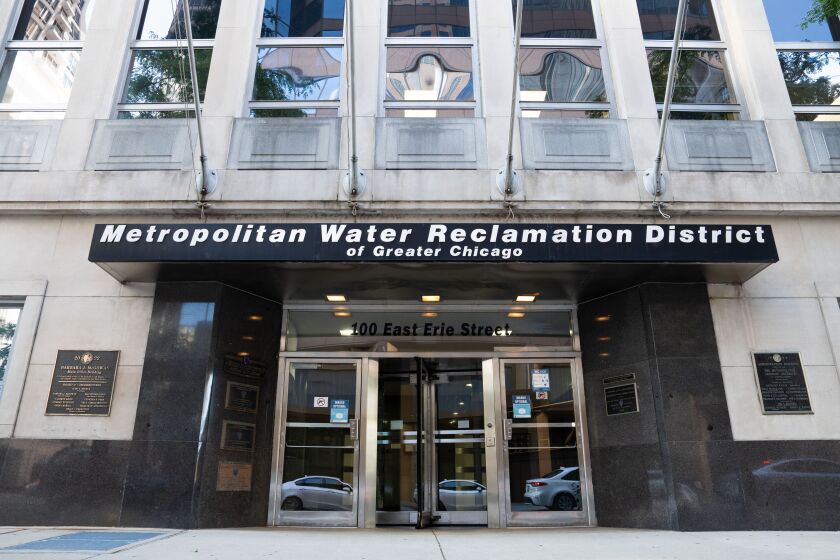For 2 1⁄2 months during the COVID-19 pandemic, the chief information officer for Cook County’s sewage-treatment agency supplemented his $270,000-a-year government job with a second full-time gig, working for a not-for-profit that certifies doctors.
Both jobs required John Sudduth to work full time Monday through Friday, generally during the same hours.
Due to the pandemic, though, neither job required Sudduth to be in the office every day, allowing him to hold dual full-time jobs, apparently without the knowledge of his bosses.
But it all blew up for Sudduth when one of his colleagues at the Metropolitan Water Reclamation District of Greater Chicago — the sewage treatment agency for most of Cook County — came across a news release issued last Dec. 12 by the American Board of Medical Specialties announcing Sudduth had been hired as its chief information officer.
Sudduth started the second job Oct. 24, 2022, according to the water reclamation district.
Double dipping during the pandemic became tougher to spot with the transition to remote work during the pandemic, making it harder for employers to monitor whether workers were secretly working a second job.
“Anecdotally, we know this occurred during COVID,” says Colleen Madden Blumenfeld of Challenger, Gray & Christmas, a Chicago outplacement firm. “It becomes more difficult the more high profile the position in the company, especially if the position manages teams. This would be very difficult to juggle.”
The medical board didn’t know Sudduth remained on the government agency’s payroll as it heralded his hiring.
“Mr. Sudduth previously served as CIO for a public utility, where he had oversight of the utility’s information technology as it related to strategy, policy, support and operations,” the board said in its Dec. 12 announcement. “In addition, he served on the executive team, which was responsible for developing and executing the organization’s information technology strategic plan.”
Water reclamation district officials confronted Sudduth, who hadn’t been given permission to work a second job, and asked Cook County’s inspector general’s office to investigate.
Under questioning, Sudduth said he accepted the second job but hadn’t been given a start date, according to an April 14 report from Steven Cyranoski, the county’s interim inspector general.
But an attorney for the medical board told the inspector general Sudduth had been hired months earlier and had been working remotely because its Chicago office was closed due to the pandemic.
The medical board’s general counsel told Cyranoski’s staff Sudduth was required to work 40 hours a week, from 8:30 a.m. to 4:30 p.m. Monday through Friday — nearly identical to his hours with the water reclamation district.
According to the inspector general’s report, the medical board’s attorney said: “It was not possible for him to perform his duties during the evening hours since he had a myriad of responsibilities in his role as CIO and was a regular participant in executive management meetings at the firm, which were always convened during normal business hours.”
Cyranoski’s report says his staff didn’t find “any evidence that [Sudduth] had worked after regular hours at either” job.
He also wrote that, when the medical board interviewed Sudduth, he “denied he had been previously questioned by MWRD. ... During the interview [Sudduth], attempted to convince the executive management team that although he was still on the payroll at the MWRD, he was focusing his efforts on his duties” for the medical board.
Sudduth, who had worked for the Metropolitan Water Reclamation District since April 2015, resigned from the agency Jan. 3 — the day he was supposed to be interviewed by the inspector general.
Because Sudduth quit, he couldn’t face any disciplinary action for violating rules that bar employees from working other jobs while on the clock for the district.
Agency records show his final paycheck totaled $31,331, which included $15,573 for unused sick days and $13,682 for unused vacation days.
Sudduth, 49, also resigned from the medical board.
Asked his situation, Sudduth said, “I’m not at liberty to talk about that.”
A representative of the medical board declined to comment.
Asked about how the pandemic and working from home played into what happened, Brian Perkovich, the water reclamation district’s executive director, who was Sudduth’s supervisor, says, “This should not have occurred before or after COVID.”





